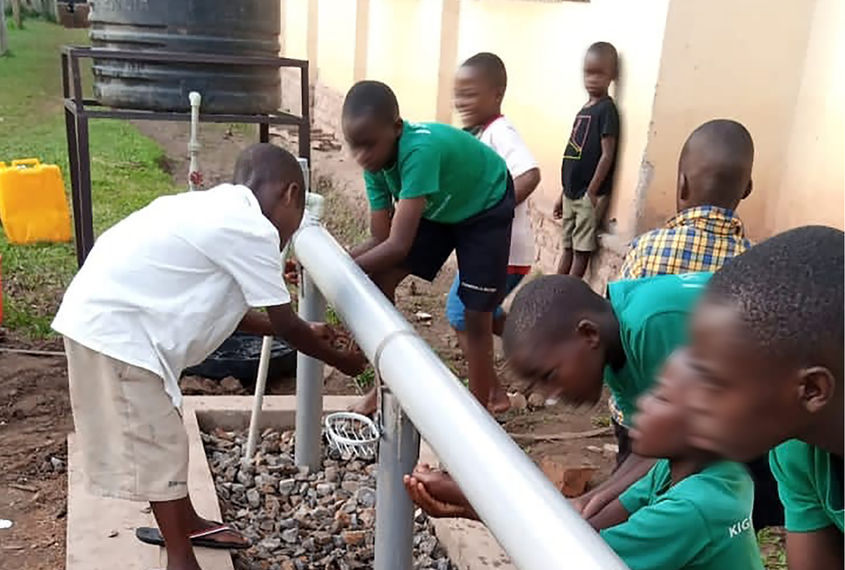The Community of Practice in Kabale, South West Uganda, is an initiative set up by the Feilden Foundation and All Our Children as a response to the question of how the Feilden Foundation could make an Education offer alongside its Architectural offer.
The two UK Charities were both working in the Kabale area in complementary ways to improve the educational experience of Ugandan children. To the mix of school building and pupil sponsorship, it was agreed to look at an educational offer to support the revision of pedagogy, a timely initiative in readiness for the proposed reform of the national curriculum in Uganda. The Ugandan educational reforms have a focus on a curriculum which will emphasise active learning, improved behaviour management approaches and ways of improving classroom and school environments.
The Community of Practice creates Leaders of Teaching and Learning within and across schools who share and critically interrogate their practice in a collaborative way and are supported and empowered to model best practice in their own schools and across others.
The commitment by the Ugandan Government to promote ‘active learning’ and ‘child centred learning’ in its schools is welcomed. It sums up an approach to teaching which involves moving away from the more traditional teacher-centred classroom to a participatory approach between teacher and pupils. Such an approach, it is hoped, will improve pupil motivation in all sectors, from nursery through to primary and onto secondary.
The ‘Community of Practice’, which has now reached its conclusion, was seen as an initial three year ‘pilot’ programme to kickstart this initiative, and to provide an exemplar model of ways in which a community of schools could work collaboratively to achieve improvements in the areas set out below:
• The development of a more child centred curriculum with active teaching and learning approaches which would make learning more relevant and enjoyable.
• The development of improved approaches to behaviour management and the elimination of corporal and harsh punishments which would improve teacher pupil relationships and student motivation.
• The development of improved school and classroom environments which would make the classroom and school environment places where children feel welcomed, safe and attended to.
The Feilden Foundation committed to a three-year funded programme in Kabale in south west Uganda. It has based its approach and investment on two key ideas of a ‘Community of Practice’ where teachers acting as ‘Leaders of Teaching and Learning’ work together within and across their schools to transform their school practice.
The project has had a very positive impact over the last three years which have been reported in the Evaluation Conference Report.
Next steps...
The Steering Group for the project in Kabale wishes to take the project forward and embed the achievements gained in the Phase 1 schools and involve a further 10 schools – with this programme making a unique contribution to the regional and national development of education in Uganda.
The central aim is to build on the success of Phase 1 and create an exemplar model of schools working collaboratively to improve education standards across Uganda.
The next phase has been made possible with a generous donation from our Trustee Mike Kironde. However, additional funding would be gratefully received to cover all future aspects of the programme.
Funding priorities for which help is being sought and how your contribution will help.
1. A renewed emphasis on Safeguarding and Child Protection Training in all 20 schools, ensuring the schools are safe environments for all children to learn in, with Safeguarding Leads (male and female) established in each school.
2. Positive engagement with parents and communities to share the new approaches to behaviour management.
3. Washalot stations in 10 Phase 2 schools to provide clean drinking water and improved sanitation creating safer environments for children’s health. These can be installed for just £750 per school.
4. Provision of 1,000 reusable sanitary pads/towels with training for girls on how to make these pads to impact on dropout rates among girls from poor socio-economic backgrounds.
5. Annual Conference for three years for all Stakeholders to come together to celebrate achievements and evaluate progress.
If you would like to donate to support this initiative you can do so here.

















